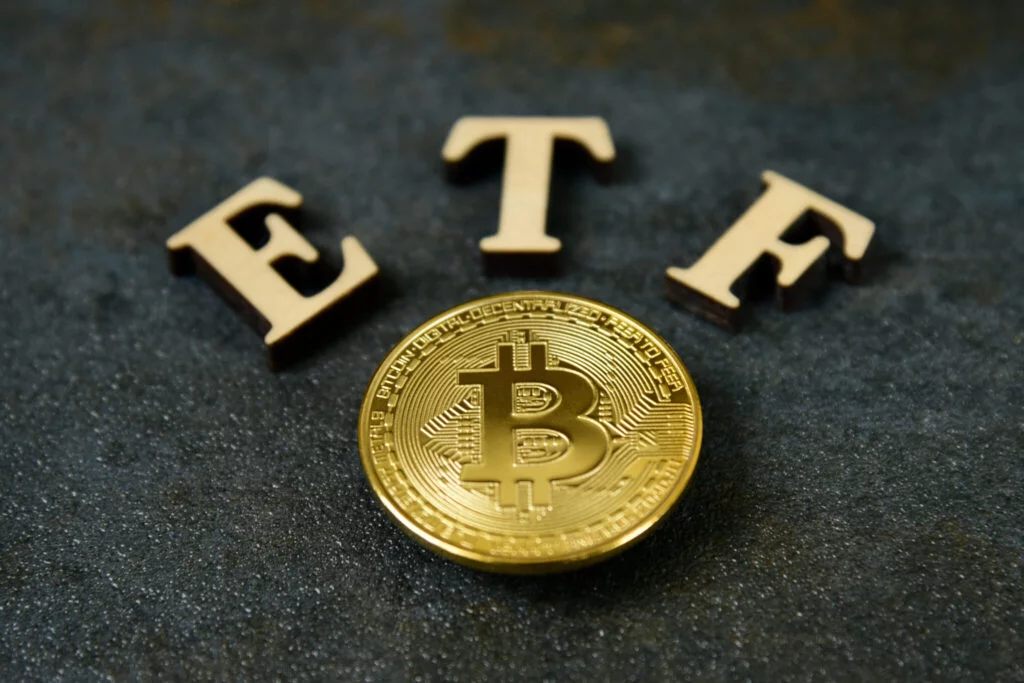US Bitcoin ETFs See Continued Positive Flow, While Ethereum Funds Struggle
21.08.2024 17:00 1 min. read Alexander Stefanov
On Tuesday, U.S. Bitcoin exchange-traded funds (ETFs) saw a notable influx, with $88.06 million in net inflows.
This marks the fourth straight day of gains for these funds. The top performer was BlackRock’s IBIT, which attracted $55.43 million. Ark Invest and 21Shares’ ARKB also saw significant investments, receiving $51.91 million.
Conversely, Grayscale’s GBTC experienced the largest outflow, losing $12.81 million, with Bitwise’s BITB following with $6.47 million in outflows. Other ETFs, including those from Fidelity and VanEck, reported no changes in their net flows.
The total trading volume for these Bitcoin ETFs was $1.35 billion on Tuesday, a rise from $779 million the previous day but still below the $5 to $8 billion range observed earlier this year. Since their introduction, these ETFs have gathered $17.52 billion in net inflows.
In contrast, spot ether ETFs faced a challenging day, with a total of $6.49 million in outflows. This was their fourth consecutive day of negative flows. Grayscale’s ETHE saw the largest decrease at $36.99 million, while BlackRock’s ETHA and Bitwise’s ETHW saw modest inflows of $26.77 million and $3.73 million, respectively.
Trading volume for ether ETFs reached $194.66 million, down from the $900 million to $1 billion range seen in their debut week. Overall, these ether funds have experienced $440.11 million in net outflows to date.
-
1
Esports Giant Moves Into Bitcoin Mining
05.07.2025 13:00 2 min. read -
2
Bitcoin Dominance Nears Key Resistance — Is Altseason Coming Next?
13.07.2025 17:00 2 min. read -
3
Elon Musk Unveils His Own ‘America Party,’ Signals Pro-Bitcoin Political Shift
07.07.2025 11:40 2 min. read -
4
Bitcoin Blasts Past $121,000 as Institutions Fuel Rally—Will Altcoins Follow?
14.07.2025 8:15 2 min. read -
5
Bitcoin: What to Expect After Hitting a New All-time High
10.07.2025 14:00 2 min. read
Global Money Flow Rising: Bitcoin Price Mirrors Every Move
Bitcoin is once again mirroring global liquidity trends—and that could have major implications in the days ahead.
What is The Market Mood Right Now? A Look at Crypto Sentiment And Signals
The crypto market is showing signs of cautious optimism. While prices remain elevated, sentiment indicators and trading activity suggest investors are stepping back to reassess risks rather than diving in further.
What Price Bitcoin Could Reach If ETF Demand Grows, According to Citi
Citigroup analysts say the key to Bitcoin’s future isn’t mining cycles or halving math—it’s ETF inflows.
Is Bitcoin’s Summer Slowdown a Buying Opportunity?
Bitcoin may be entering a typical summer correction phase, according to a July 25 report by crypto financial services firm Matrixport.
-
1
Esports Giant Moves Into Bitcoin Mining
05.07.2025 13:00 2 min. read -
2
Bitcoin Dominance Nears Key Resistance — Is Altseason Coming Next?
13.07.2025 17:00 2 min. read -
3
Elon Musk Unveils His Own ‘America Party,’ Signals Pro-Bitcoin Political Shift
07.07.2025 11:40 2 min. read -
4
Bitcoin Blasts Past $121,000 as Institutions Fuel Rally—Will Altcoins Follow?
14.07.2025 8:15 2 min. read -
5
Bitcoin: What to Expect After Hitting a New All-time High
10.07.2025 14:00 2 min. read


